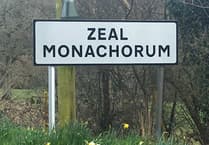EXETER City Council has agreed its new budget for 2023/24, which includes a council tax rise of 2.99 per cent.
The increase, the maximum Exeter can put up council tax without holding a referendum, will mean a rise of £5.08 per year for an average Band D property.
Together with other increases for the county council, fire and police, Exeter’s Band D households will fork out £2,167.61 in council tax next year. The city council receives around eight per cent of the tax.
Presenting the budget to a full council meeting at the Guildhall on Tuesday, February 21, leader Phil Bialyk (Labour, Exwick) explained that cost-of-living pressures – including higher energy costs – meant the authority had to cut £3 million from other areas.
“It’s worth remembering that we have seen a reduction in central government funding of more than 60 pence in every pound over the last 12 years,” he told councillors, adding it had done “everything possible” to minimise the impact of reductions to residents.
However, Cllr Bialyk said the council needed to increase its charges “in line with or just below inflation, and we have re-zoned many of our car parks in the city centre.”
“This will have an impact on some, but it is a necessary part of our budget process,” he explained.
The council leader also used his speech to highlight what he believed to be the city’s successes over the last year, including its response to the war in Ukraine, upgrading Exeter’s CCTV control room, the return of the city’s carnival and the council’s in-house leisure service going from “strength-to-strength”.
While the Labour budget was supported by the Conservatives, the opposition Progressive Group – made up of the Green Party, Liberal Democrats and one Independent councillor – voted against it.
Councillor Diana Moore (Green, St David’s) said there is “much good work that the city council do” but added: “I’m concerned this budget doesn’t show how the council will tackle the challenges that we will face.”
In particular, she wanted to know when the city’s long-awaited food waste collection service would be rolled out across the whole city.
The council says more than 20,000 properties will have access to the service over the next three months, and “other areas will be added to the roll-out as and when vehicles, drivers and containers are available”.
Tory group leader Anne Jobson (St Loyes) said: “Due to the work undertaken by officers, we will be supporting the budget,” but stressed: “That does not mean that we support the actions of the ruling Labour group, which we believe have largely created the current situation.
“It is the addiction of the group to high rates of borrowing which leaves the council’s debt at £167 million,” she said, claiming that it wouldn’t be fully paid off for decades.
But Labour councillors lined up one after another to point the finger at the Conservatives in Westminster for the pressures facing local authorities across the country.
“Despite the fact that her government has taken away 60 per cent of our funding since 2010 … somehow we’re responsible for that?” Cllr Yvonne Atkinson (Labour, Alphington and Cowick) said.
“Well, I don’t see how we can be responsible for that, and I don’t see how we can be responsible for interest rate rises either.”
The Progressive Group’s budget amendments were rejected. They included more investment into parks and open spaces, refurbishing a city centre public toilet and replacing the quay’s Mallison Bridge.
The amendments were proposed to be funded from surplus income from the Guildhall Shopping Centre and by increasing car parking charges by 2.5 per cent.
However, Cllr Bialyk said the three working days’ notice of the amendments was “not enough” for the council to consider them fully, though Cllr Moore said her group had acted within the constitution.
Later in the meeting, Cllr Bialyk said a replacement for Mallison Bridge was not in the council’s budget “because we simply do not have the necessary funds” but did say a joint bid with Devon County Council is being prepared.
Councillors approved the ruling Labour group’s budget by a margin of 26 votes to seven, with one abstention.




